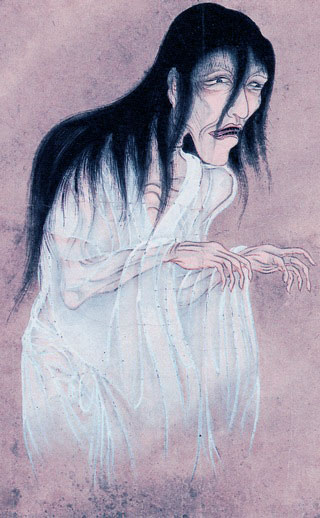 What makes a good ghost story?
What makes a good ghost story?
I’ve been writing short stories all summer long, and with All Souls Day right around the corner, I’d like to write a ghost story. All my short stories this summer have involved my favorite topic, millinery. So I suspect my ghost will be a milliner.
So many authors have tried their hand at ghost stories. Charles Dickens, Bulwer-Lytton, George Elliot, Mrs. Gaskell, Anatole France, Nathaniel Hawthorne, Thomas Hardy, Washington Irving, Henry James, Somerset Maugham, Guy de Maupassant, Edgar Allan Poe, Sir Walter Scott, Mark Twain, H. G. Wells, Oscar Wilde, Emily Bronte, Roald Dahl, and even Anne Tyler, with The Beginner’s Goodbye.
According to Roald Dahl, a good ghost story needs to give the reader the creeps and the shivers. You might like to read his introduction to Book of Ghost Stories, a collection of his favorites written by other authors. In it, Dahl says that good ghost stories are tough to write, and although he’s been writing short stories for 45 years, he hasn’t succeeded in writing a good ghost story, even though he’s tried.
Another point Dahl brings out is that you seldom actually see a ghost in a ghost story. Rather, you see or feel ghost actions, such as feeling something brush past or having the temperature drop dramatically. If the story does present, visually, the ghost, it looks like an ordinary person. No claws, no vanishing ladies dressed in gauze, no sheets. In The Beginner’s Goodbye, Dorothy appears just as she had before she died. She and Aaron chuckle because passers by, acquaintances, seem to have forgotten the terrible accident (an emormous oak falls on their house) that left Aaron bereft. A man who had handled their mortgage casually says, “You two still enjoying the house?”
In “How to write a modern ghost story,” author Joanna Briscoe states that contemporary writers are challenged by cynical audiences who won’t necessarily suspend disbelief just because the scene portrays a candlelit wreck in the fog. Briscoe also says there are very few full-length novels that are ghost stories, because such stories depend on both suspension of disbelief and a state of tension that can only be maintained for a limited time before exhausting the reader.
So it seems this is truly a challenge. Will you take it on? Wish me luck.